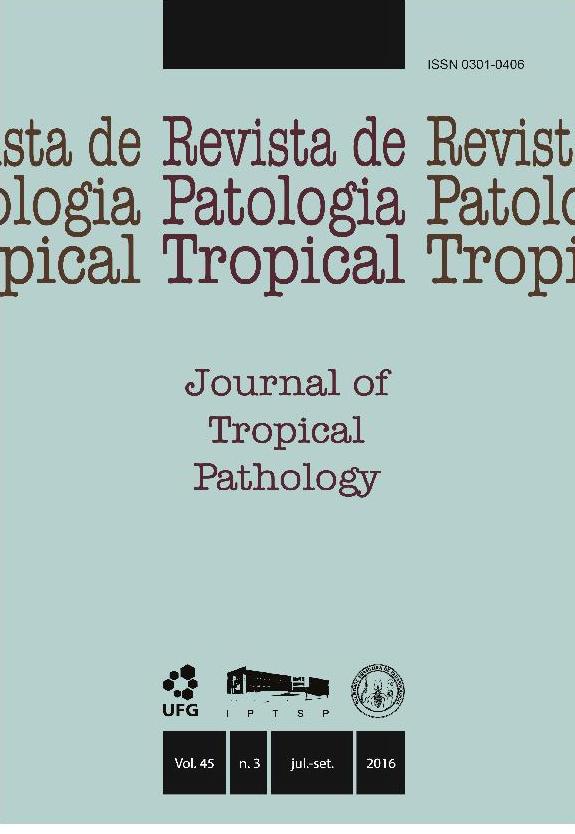AVALIAÇÃO DA FREQUÊNCIA DE Balantidium coli EM suínos, TRATADORES DE SUÍNOS E PRIMATAS NÃO HUMANOS NO ESTADO DO RIO DE JANEIRO
DOI:
https://doi.org/10.5216/rpt.v45i3.43505Palavras-chave:
Balantidiose, tratadores de animais, zoonose, parasitoses intestinais.Resumo
Este trabalho relata a frequência de Balantidium coli nos tratadores de suínos e primatas não humanos que trabalham em criatórios localizados em distintos municípios do estado do Rio de Janeiro. No período de 2012 a 2014, foram coletadas 104 amostras fecais de 52 tratadores, 790 amostras fecais de suínos e 1.115 de primatas não humanos. Todas as amostras foram coletadas sem conservante químico, sendo submetidas às técnicas de Faust et al., Sheather modificada, Ritchie modificada, Lutz e exame direto. Formas evolutivas de B. coli não foram detectadas nas amostras fecais dos tratadores, porém foram evidenciadas em 49,2% dos suínos e em 41,5% do material fecal dos símios. A ausência da balantidiose em humanos, embora estivessem em contato próximo com animais parasitados, como foi demonstrado neste estudo, pode ter ocorrido em virtude da adoção de adequadas medidas higiênico-sanitárias na manipulação desses animais ou graças à resistência humana à infecção por esse protozoário.
Downloads
Downloads
Publicado
Como Citar
Edição
Seção
Licença
The manuscript submission must be accompanied by a letter signed by all authors stating their full name and email address, confirming that the manuscript or part of it has not been published or is under consideration for publication elsewhere, and agreeing to transfer copyright in all media and formats for Journal of Tropical Pathology.

